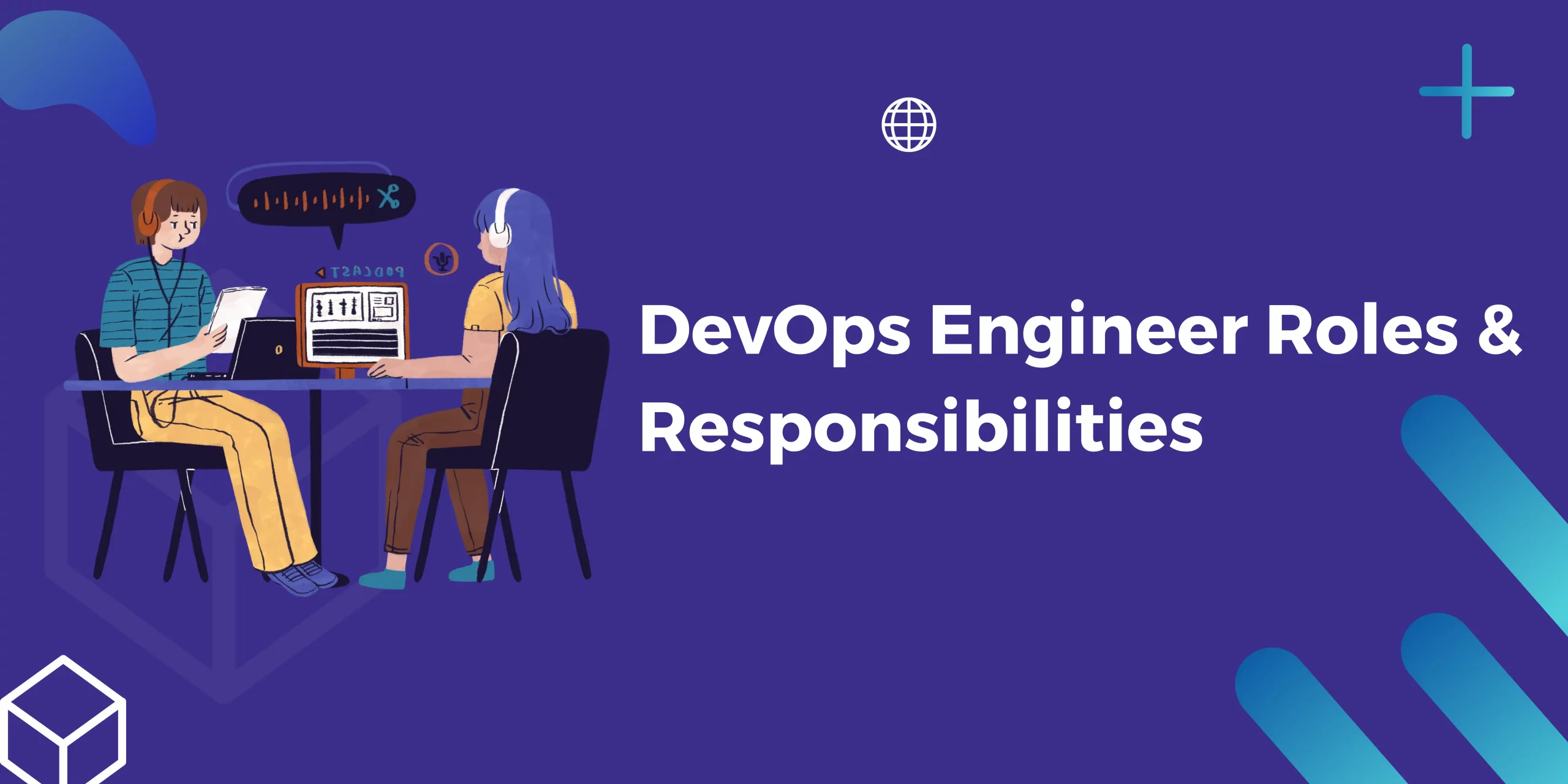
DevOps Engineer Roles, Responsibilities, Skills, and Job Description
Apr 03, 2025 4 Min Read 5447 Views
(Last Updated)
DevOps engineers help teams release better software faster. Their work connects development and operations, enabling smooth integration, delivery, and monitoring across the software lifecycle.
In this blog, you’ll learn what DevOps engineer roles and responsibilities include – from writing CI/CD pipelines to managing cloud infrastructure. We’ll also break down the DevOps engineer job description, required skills, and career prospects.
Table of contents
- DevOps Engineer Roles and Responsibilities
- DevOps Engineer Job Description
- DevOps Engineer Job Description - Example 1
- DevOps Engineer Job Description - Example 2
- DevOps Engineer Job Description - Example 3
- Skills Needed for DevOps Engineers
- Expertise in scripting and programming languages
- Good knowledge of cloud computing platforms
- Robust understanding of configuration management tools
- Education and Background for DevOps Engineers
- Self-study and coding boot camps
- Formal degree
- Continuous learning
- Portfolio building
- Tech Stacks and Tools for DevOps Engineers
- The Future of DevOps Engineers
- Frequently asked questions
- Is DevOps a good career option for freshers?
- What comes after becoming a DevOps engineer?
- Can AI replace DevOps engineers?
- Do DevOps engineers need to know coding?
- What are the core responsibilities of a DevOps engineer?
DevOps Engineer Roles and Responsibilities
The roles of DevOps engineers focus on improving software delivery and system reliability. They bridge the gap between development and operations teams. Below are the key responsibilities of a DevOps engineer in most organizations.
- Automating build, deployment, and infrastructure tasks to speed up release cycles.
- Managing CI/CD pipelines for seamless code integration and delivery.
- Collaborating with developers, QA, and IT teams to improve delivery workflows.
- Monitoring systems for availability, performance, and error resolution.
- Using configuration management tools to manage infrastructure as code.
- Creating deployment and monitoring tools for production environments.
- Handling infrastructure security, access controls, and compliance checks.
- Planning for capacity and scaling infrastructure based on usage.
- Taking part in on-call support and resolving production issues quickly.
- Staying current with DevOps tools and best practices across the industry.
These roles of DevOps engineers span the entire software development lifecycle – from initial code commit to deployment and maintenance – making their contribution essential to any high-performing tech team.
Before we move to the next part, you should have a deeper knowledge of DevOps concepts. Consider enrolling in GUVI’s DevOps course, which lets you gain practical experience by developing real-world projects. The course covers technologies including Agile, Scrum, Linux, Git, Bash Scripting, Dockers, Containers, AWS infrastructure, etc.
You can also undertake GUVI’s AWS Infrastructure certification course and benefit through self-paced learning.
DevOps Engineer Job Description
A standard DevOps engineer job description includes key roles, responsibilities, and the tools or platforms candidates should know. Below are real-world examples that reflect what companies expect from DevOps professionals today.
DevOps Engineer Job Description – Example 1
Company: ChangeLeaders.in
- Resolve software and technical queries from customers efficiently.
- Create CI/CD pipelines and Kubernetes manifest files for deployment.
- Collaborate with L1 and L2 teams to meet response and resolution SLAs.
- Automate routine and ad-hoc tasks to ensure timely completion.
- Support strategic projects in coordination with the technical support team.
- Manage customer issues from reporting to resolution, with regular updates.
- Generate reports on system usage, performance, and availability.
- Document solutions and suggest improvements in automation and support.
- Build and deploy Docker containers using Kubernetes.
- Apply patches and updates to various Linux environments.
DevOps Engineer Job Description – Example 2
Company: Uplers
- Design, implement, and maintain Azure infrastructure and CI/CD pipelines using Azure DevOps.
- Work closely with development teams to support smooth code deployments.
- Monitor system performance and resolve availability issues proactively.
- Apply security best practices and ensure compliance with standards.
- Automate recurring tasks to improve operational efficiency.
- Maintain centralized technical documentation for internal use.
DevOps Engineer Job Description – Example 3
Company: Cortex Consultants LLC
- Design secure, scalable, and highly available cloud infrastructure.
- Collaborate with engineering teams on infrastructure and deployment planning.
- Provision and manage cloud environments using infrastructure as code.
- Use configuration management tools to ensure system compliance.
- Administer and troubleshoot Linux systems.
- Coordinate with stakeholders across teams to meet project expectations.
- Contribute high-quality documentation or technical content.
- Work with global teams to support customer-facing solutions.
Skills Needed for DevOps Engineers
The skills needed for DevOps engineer roles and responsibilities include development and IT operations knowledge. Look at a few of the most in-demand ones in the field.
Expertise in scripting and programming languages
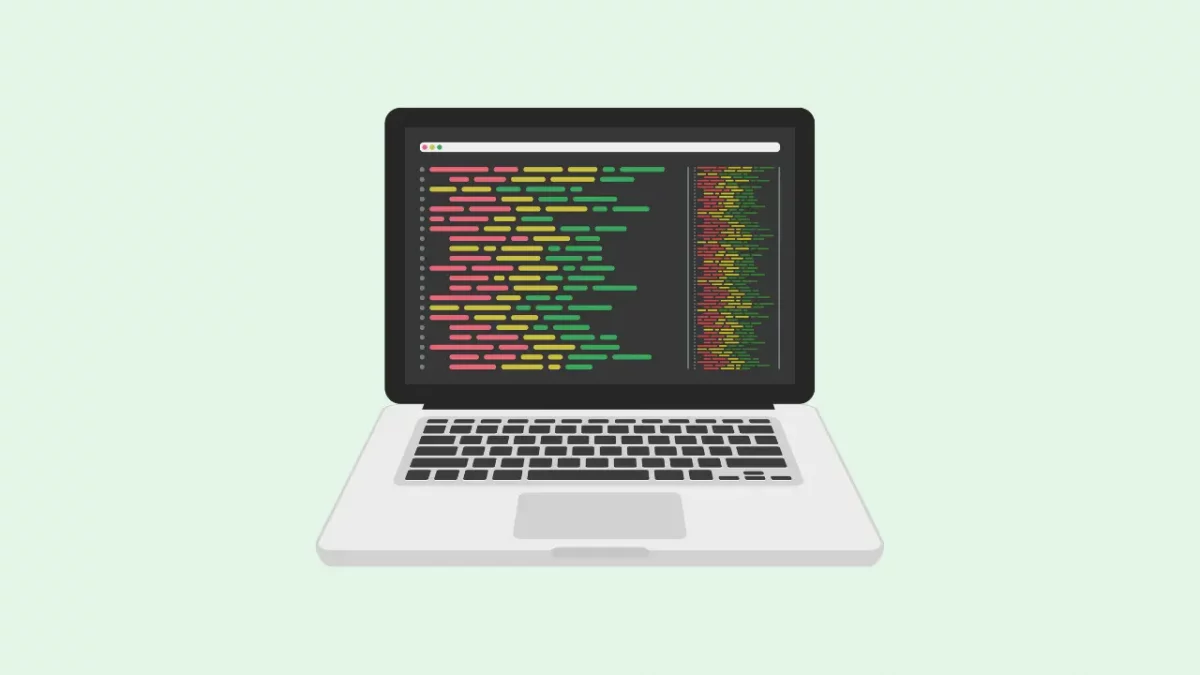
DevOps engineers should be comfortable writing scripts in Python, Bash, or PowerShell. These languages help automate tasks tied to key responsibilities, such as provisioning infrastructure, managing deployments, and monitoring systems. Strong scripting skills make workflows faster, more consistent, and easier to maintain.
Good knowledge of cloud computing platforms
Most DevOps engineer roles involve working with cloud platforms like AWS, Azure, or Google Cloud. You’ll use them to deploy applications, set up servers, manage containers, and scale infrastructure on demand. A strong grasp of cloud services is essential to handle production environments with speed and reliability.
Robust understanding of configuration management tools
Tools like Ansible, Puppet, and Chef help automate infrastructure tasks and keep systems consistent across environments. DevOps engineers use them to write configuration scripts, manage provisioning, and maintain servers without manual work. Knowing how to work with these tools is key to handling large-scale deployments.
Education and Background for DevOps Engineers
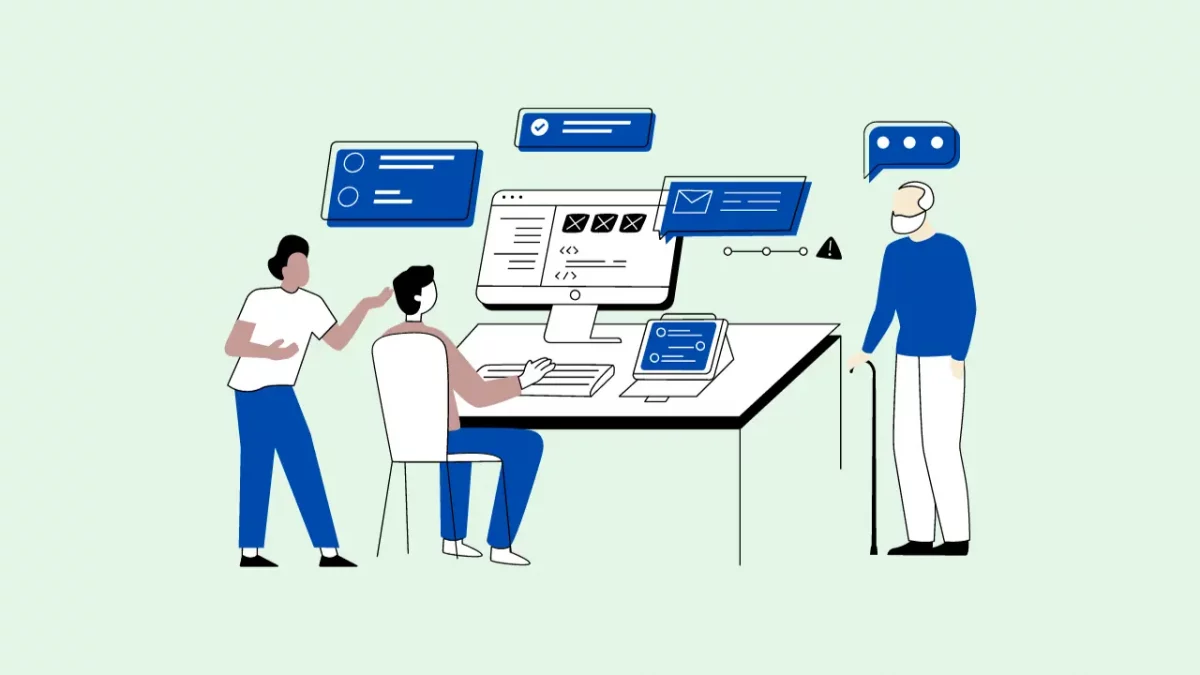
While hands-on skills often matter more than formal education, a strong academic or training background still supports many DevOps engineer roles and responsibilities. It demonstrates a well-rounded education.
Here’s a breakdown of the most common paths professionals take to enter the field:
Self-study and coding boot camps
Many DevOps engineers get started through self-study or short-term boot camps. These routes help build job-ready skills, like working with Git, Linux, cloud tools, and CI/CD pipelines without needing a formal degree.
Self-study empowers individuals to take control of their learning journey, using online tutorials, documentation, and other resources to deepen their understanding of DevOps tools and practices.
Coding boot camps often include real-world projects that reflect the responsibilities of DevOps engineers, such as deploying applications, writing automation scripts, and managing cloud environments.
Formal degree
A computer science, IT, or software engineering degree helps you build a strong base in programming, systems, and problem-solving. While it’s not a must-have, many DevOps engineers use this background to understand infrastructure and automation tools better.
Coursework and group projects often reflect real DevOps responsibilities, such as writing code, collaborating across teams, and managing environments with version control and cloud tools.
You can learn about the DevOps syllabus in detail in our blog post, which offers a comprehensive breakdown of all the modules you need to master to become a DevOps expert.
Continuous learning
DevOps tools change fast, so continuous learning is part of the job. Online courses, tech blogs, GitHub repos, and community forums help engineers stay updated on new practices, tools, and automation methods.
Whether it’s picking up a new IaC tool or improving your CI/CD pipeline, ongoing learning supports the real-world responsibilities of DevOps engineer.
Portfolio building
A solid portfolio helps you stand out when applying for DevOps engineer roles. Employers value portfolios with tangible results and hands-on experience. Include projects where you’ve built CI/CD pipelines, used cloud infrastructure, or automated deployments.
You can also contribute to open-source projects or document your work on GitHub to show how you’ve handled real DevOps responsibilities with practical tools.
Tech Stacks and Tools for DevOps Engineers

DevOps engineers rely on various tools and tech stacks to manage deployments, monitor systems, and automate workflows. While every company uses its own setup, below are some of the most common stacks and tools tied to day-to-day responsibilities.
DevOps engineers tech stacks:
- LAMP (Linux, Apache, MySQL, PHP)
- MEAN (MongoDB, Express.js, Angular, Node.js)
- MERN (MongoDB, Express.js, React, Node.js)
DevOps engineers tools:
- CI/CD Tools – Jenkins, CircleCI, GitLab CI/CD
- Configuration Management – Ansible, Puppet, Chef
- Containerization – Docker, Kubernetes
- Infrastructure as Code (IaC) – Terraform, CloudFormation
- Version Control – Git, SVN
- Monitoring & Logging – Prometheus, ELK Stack
- Cloud Platforms – AWS, Azure, Google Cloud
- Scripting Languages – Python, Bash, PowerShell
- Team Collaboration – Slack, Jira, Confluence
These tools directly support DevOps engineer responsibilities like automation, version control, continuous delivery, and infrastructure management. Tool preferences may vary, but learning how to evaluate and work with them is part of the job.
Kickstart your career by enrolling in GUVI’s DevOps course, where you will master technologies such as Linux, Git, AWS, and other projects and build interesting real-life DevOps projects.
Alternatively, if you want to explore AWS infrastructure through a self-paced course, try GUVI’s AWS Infrastructure certification course.
The Future of DevOps Engineers
DevOps engineer roles and responsibilities will remain dominant as companies depend on automation, scalable infrastructure, and faster release cycles.
With AI and cloud services becoming standard across industries, DevOps engineers who can manage tools, troubleshoot systems and streamline delivery will be in high demand.
If you’re building a career in this field, focus on bettering your skills with real tools, such as Docker, Kubernetes, Git, and Terraform, and stay updated on how these tools evolve in production environments.
Frequently asked questions
Yes. DevOps offers strong career growth for freshers with coding, automation, and cloud platform skills. It’s a practical field with high demand and good entry-level salaries.
You can advance to senior DevOps roles, become a site reliability engineer (SRE), or specialize in cloud infrastructure, security, or platform engineering. Upskilling in AI and Kubernetes is also common.
No. AI may automate tasks, but DevOps engineers still need to manage systems, write scripts, handle deployments, and solve production issues.
Yes. Most DevOps engineer roles require coding or scripting skills in Python, Bash, or PowerShell to automate tasks, manage infrastructure, and build CI/CD pipelines.
Core responsibilities include managing CI/CD pipelines, automating deployments, maintaining infrastructure, monitoring systems, and ensuring code runs smoothly in production.




















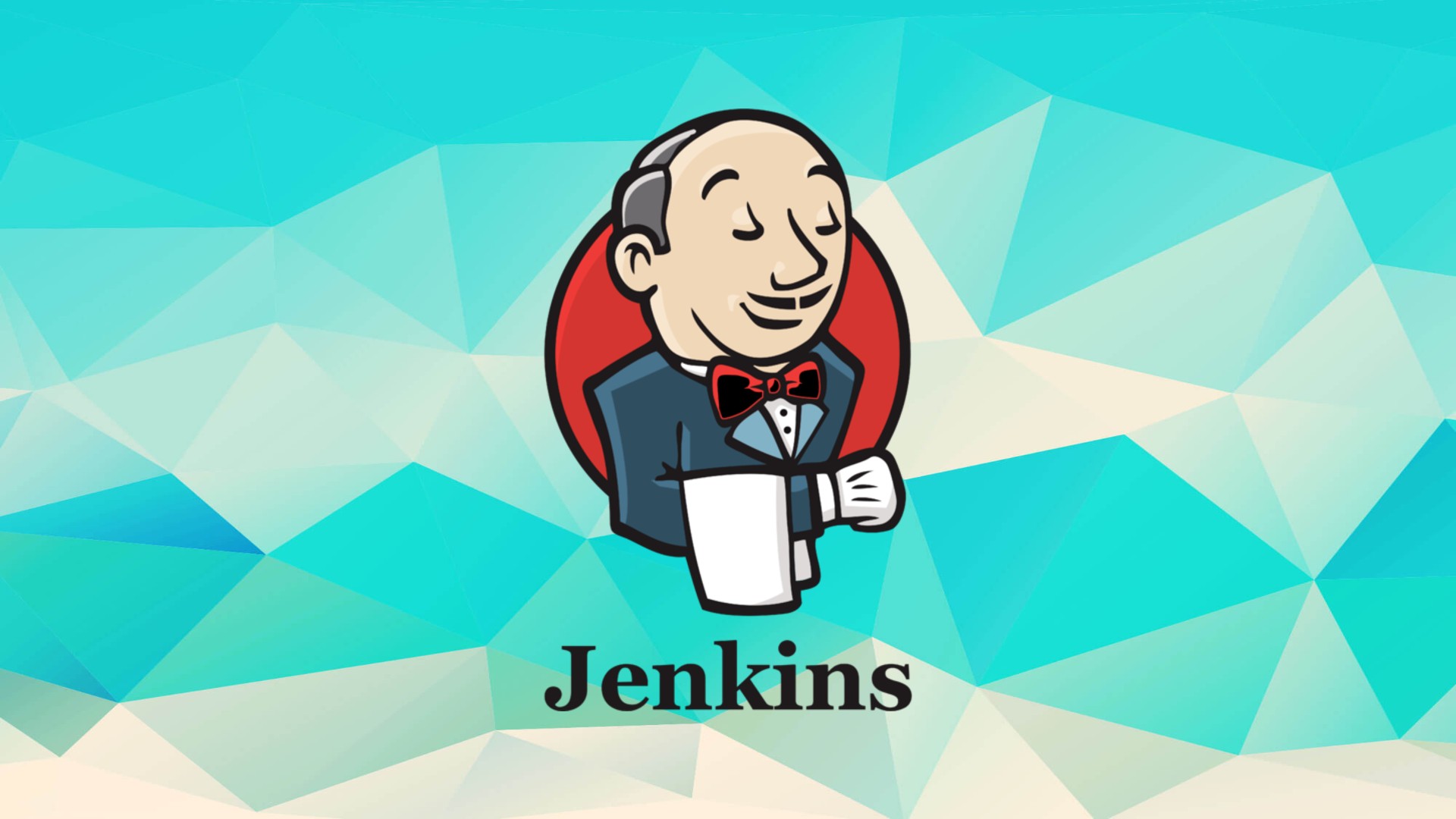
![Top High-Paying Non-Coding Jobs in DevOps [2025] 6 Non-Coding Jobs in DevOps](https://www.guvi.in/blog/wp-content/uploads/2023/11/Top-10-Non-Coding-Jobs-in-DevOps.png)



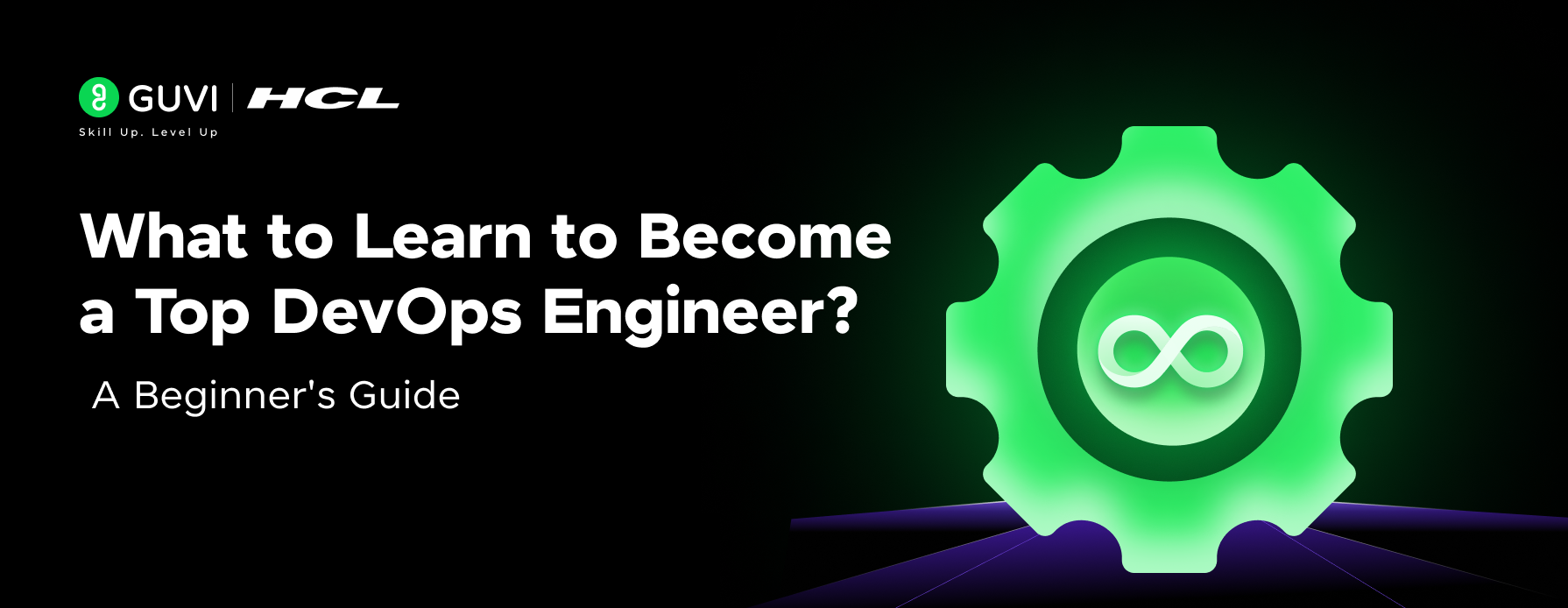

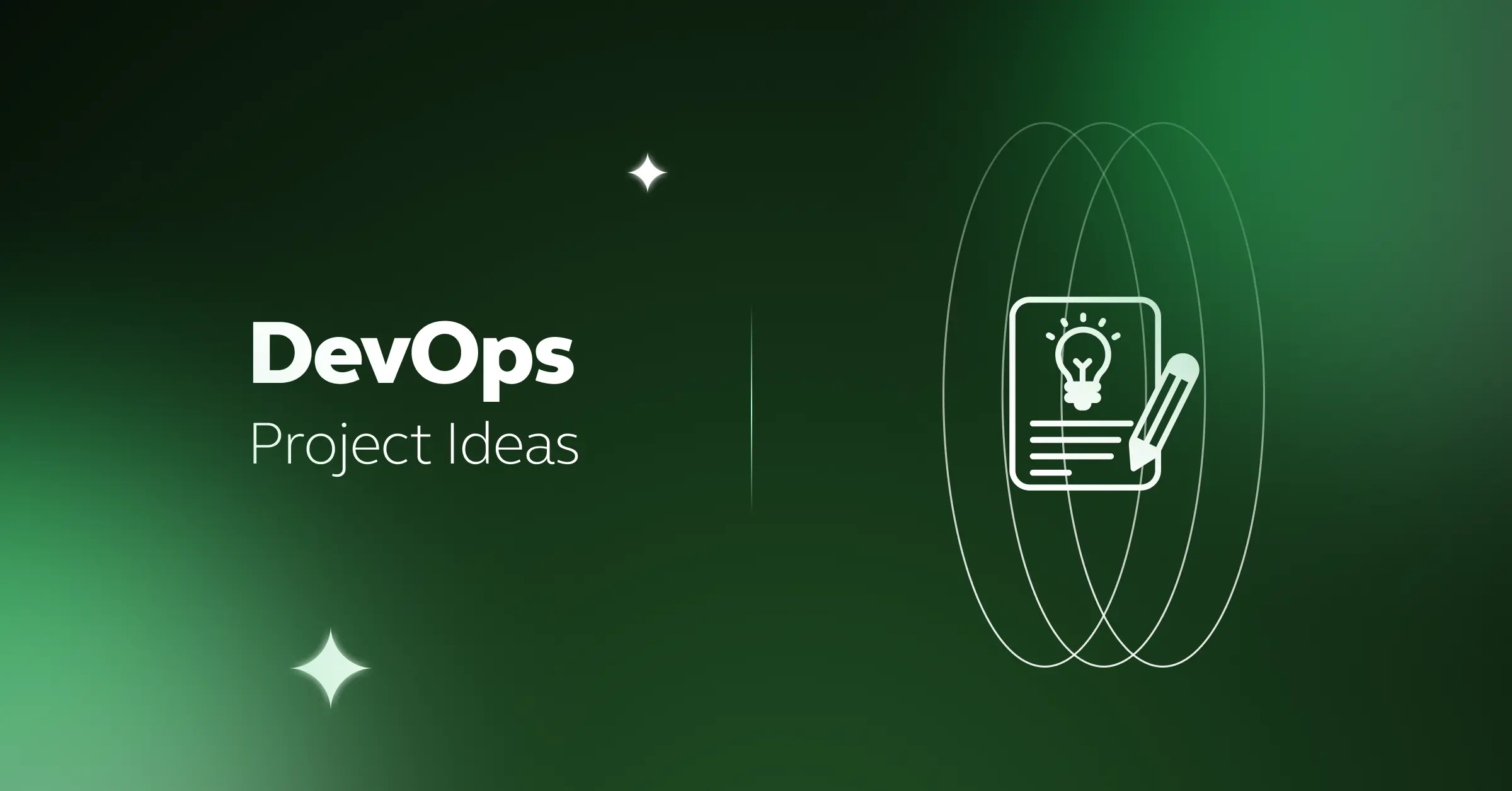
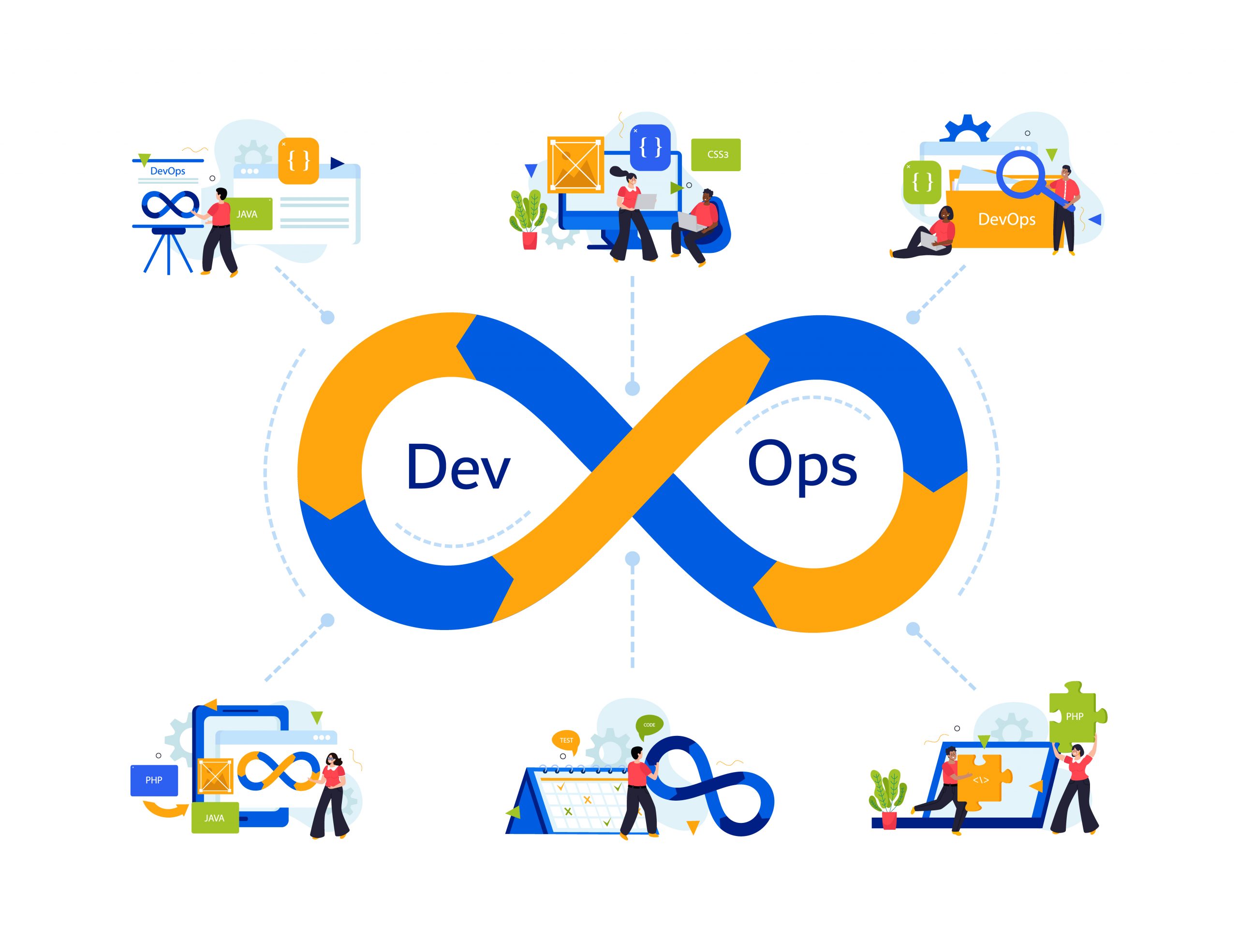

Did you enjoy this article?